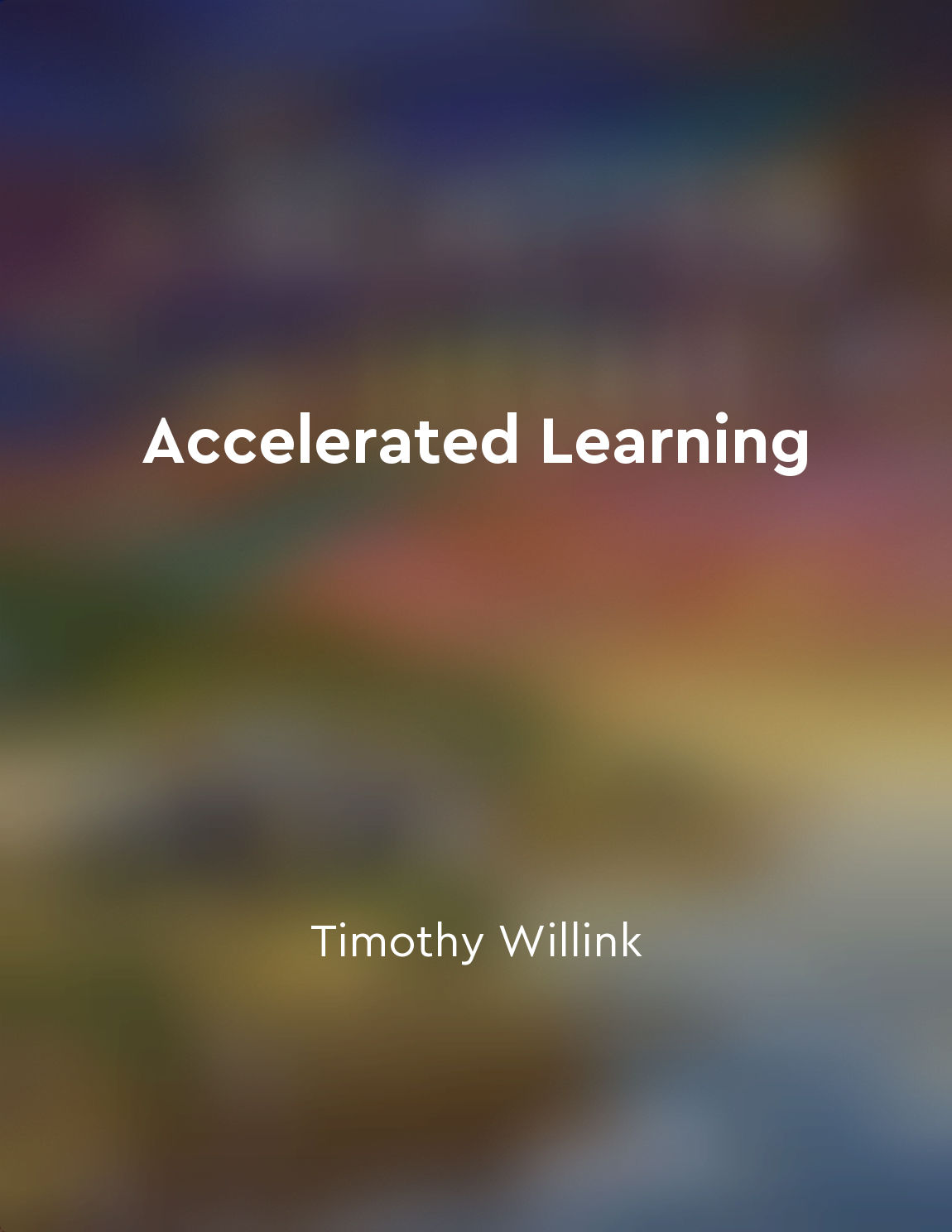Peer interactions play a role in learning outcomes from "summary" of Education Psychology by
Peer interactions are a crucial aspect of the learning process. When students engage with their peers, they have the opportunity to share ideas, ask questions, and receive feedback. This social interaction allows students to develop a deeper understanding of the material being presented. Through peer interactions, students can clarify their own thinking by explaining concepts to others. In doing so, they are able to solidify their knowledge and uncover any misunderstandings they may have. Additionally, peer interactions can provide students with alternative perspectives and new ways of approaching a problem. This can lead to increased creativity and critical thinking skills. Moreover, peer interactions can help students develop important social skills, such as communication, collaboration, and conflict resolution. By working with their peers, students learn how to effectively communicate their ideas, listen to others, and work together towards a common goal. These social skills are valuable not only in the classroom but also in future endeavors. Research has shown that peer interactions can have a significant impact on learning outcomes. Students who engage in peer discussions and collaborative activities tend to perform better academically. This is because peer interactions promote active engagement with the material, which can enhance comprehension and retention. In essence, learning is a social process that is enriched by the involvement of peers.- Peer interactions play a vital role in shaping learning outcomes. By engaging with their peers, students can deepen their understanding of the material, develop important social skills, and improve their academic performance. Therefore, educators should encourage and facilitate peer interactions in the classroom to enhance the learning experience for all students.
Similar Posts

Stay focused and avoid distractions
To achieve accelerated learning, it is essential to maintain a high level of focus and actively avoid distractions. Distraction...
Elaboration and explanation deepen understanding
When we engage in elaboration and explanation, we are taking the time to delve deeper into the material at hand. This process i...
Recognize the importance of rest and relaxation in the learning process
It may seem counterintuitive, but taking breaks and allowing time for rest and relaxation is crucial for effective learning. Wh...
Break down complex information into smaller parts
To fully grasp intricate information, it is crucial to break it down into more manageable components. This process allows you t...
Embrace cultural nuances in speech
Understanding and incorporating cultural nuances in speech is crucial for effective communication. It goes beyond simply learni...
Use visual aids and mnemonics to enhance memory
When learning new information, it is essential to find ways to enhance memory retention. One effective strategy is to utilize v...

Teach children to ask meaningful questions
Encouraging children to ask meaningful questions is a crucial aspect of fostering their critical thinking skills. By teaching t...

Stay curious
The concept of 'Stay curious' is about maintaining a sense of wonder and inquisitiveness in everything you do. It is about aski...

Prioritize your study materials based on importance
When it comes to studying, it's essential to know how to make the most of your time and resources. One effective strategy is to...
Setting aside time for relaxation
In our fast-paced lives filled with endless to-do lists and commitments, it is easy to get caught up in the hustle and bustle o...

